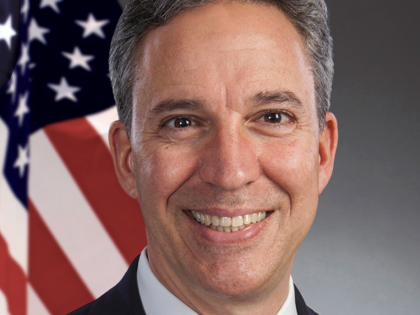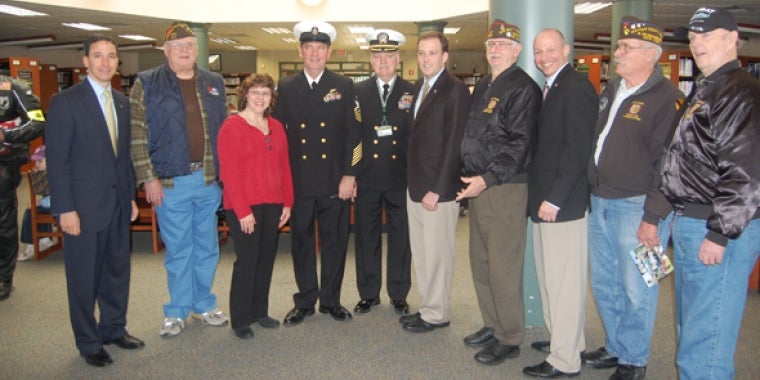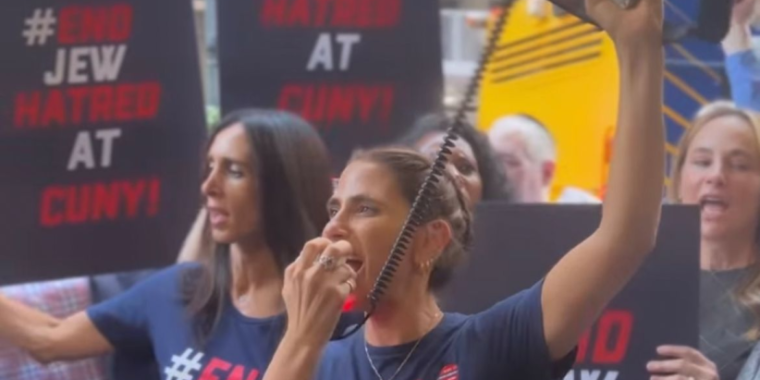
Senators Martins and Zeldin Fight For Sanctity of Military Funerals
Jack M. Martins
March 15, 2011
-
ISSUE:
- Military Affairs

Senate Passes Legislation to Limit Protests at Military Funerals
A bill, sponsored by Senator Lee Zeldin and co-sponsored by Senator Jack M. Martins, to limit protests at military funerals has passed the New York State Senate. The legislation (S.3901), The Specialist Thomas Wilwerth Military Dignity Act, is named for an Iraq War veterans who lost his life in combat in 2006.
The bill prohibits protests within 2,500 feet of military services, funerals, and processions of deceased service members unless the protest organizers post a bond to the local municipality to defray the increased security costs associated with demonstrations that occur closer to these funeral activities. Protestors would also not be permitted within 500 feet of funeral activities and would have to apply for a permit with the New York State Division of Veterans' Affairs under this measure.
“Protesting at a military funeral is both legally and morally wrong. While I respect and believe in freedom of speech, it should not interfere with a family’s right to mourn with dignity,” said Senator Martins. “Our veterans and service men and women have sacrificed so much for our freedom. They deserve to be honored with respect.”
“We are sending an important message to current and future Gold Star families that we are fighting to protect the dignity, respect and honor that their fallen military veteran deserves,” said Senator Zeldin.
Senate Majority Leader Dean G. Skelos said, “The bill would help ensure order, honor and discretion at these emotional events.”
Massachusetts has a similar law that enforces a buffer zone around funerals to prevent disruptions by protestors.
“I would like to issue a real challenge to the people who want to protest the funerals of our fallen heroes. Our soldiers fight at home and abroad for our freedoms. If the protestors can give me one reason why they should be protesting instead of kissing and thanking our heroes, then I’ll listen,” said Terry Wilwerth, Father of Specialist Thomas Wilwerth.
The bill has been sent to the Assembly where it is sponsored by Assemblyman Dean Murray of East Patchogue.
This legislation is part of a package of Veterans bills that was passed by the Senate including:
Bill S.2421 sponsored by Senator Ball would require that absentee or military ballots of any active duty service member be counted even if such service member dies before the date of the election for which it was cast;
Bill S.2424A sponsored by Senator Ball establishes the New York State Veterans Cemetery Act and provides the mechanism for the establishment of a New York State Veterans Cemetery Program;
Bill S.3484 sponsored by Senator Ball extends provisions establishing a recruitment incentive and retention program in the form of a tuition reimbursement for certain active members of the New York Army National Guard, Air National Guard and Naval Militia;
Bill S.1728 sponsored by Senator William Larkin (R-C, Cornwall-on-Hudson) would create the crime of “Cemetery Desecration of a Veteran” and also allows community service to be provided for desecrated cemeteries as a condition for probation or conditional release;
Bill S.1504 sponsored by Senator Larkin would prohibit the unauthorized sale of veterans’ commemorative property, including artifacts, statues or other physical memorabilia from a cemetery, in order to preserve history and provide for the continued reverence of those who faithfully served our country;
Bill S.1431 sponsored by Senator Stephen Saland (R-I-C, Poughkeepsie) directs the Adjutant General to present a United States flag to the person disposing of the body of a member of the National Guard, Air National Guard or Naval Militia who dies in the service of their state and nation; and
Bill S.656 sponsored by Senator David Valesky (D, Oneida) allows the State Department of Environmental Conservation to organize fishing events that provide physical or emotional rehabilitation for veterans or active duty members of the armed forces without the need for veterans or active duty members to obtain fishing licenses.
Share this Article or Press Release
Newsroom
Go to NewsroomEnd Jew-hatred rallies against systemic antisemitism at CUNY
September 15, 2023

A soulful ceremony on Sept. 11 in Oyster Bay
September 15, 2023
